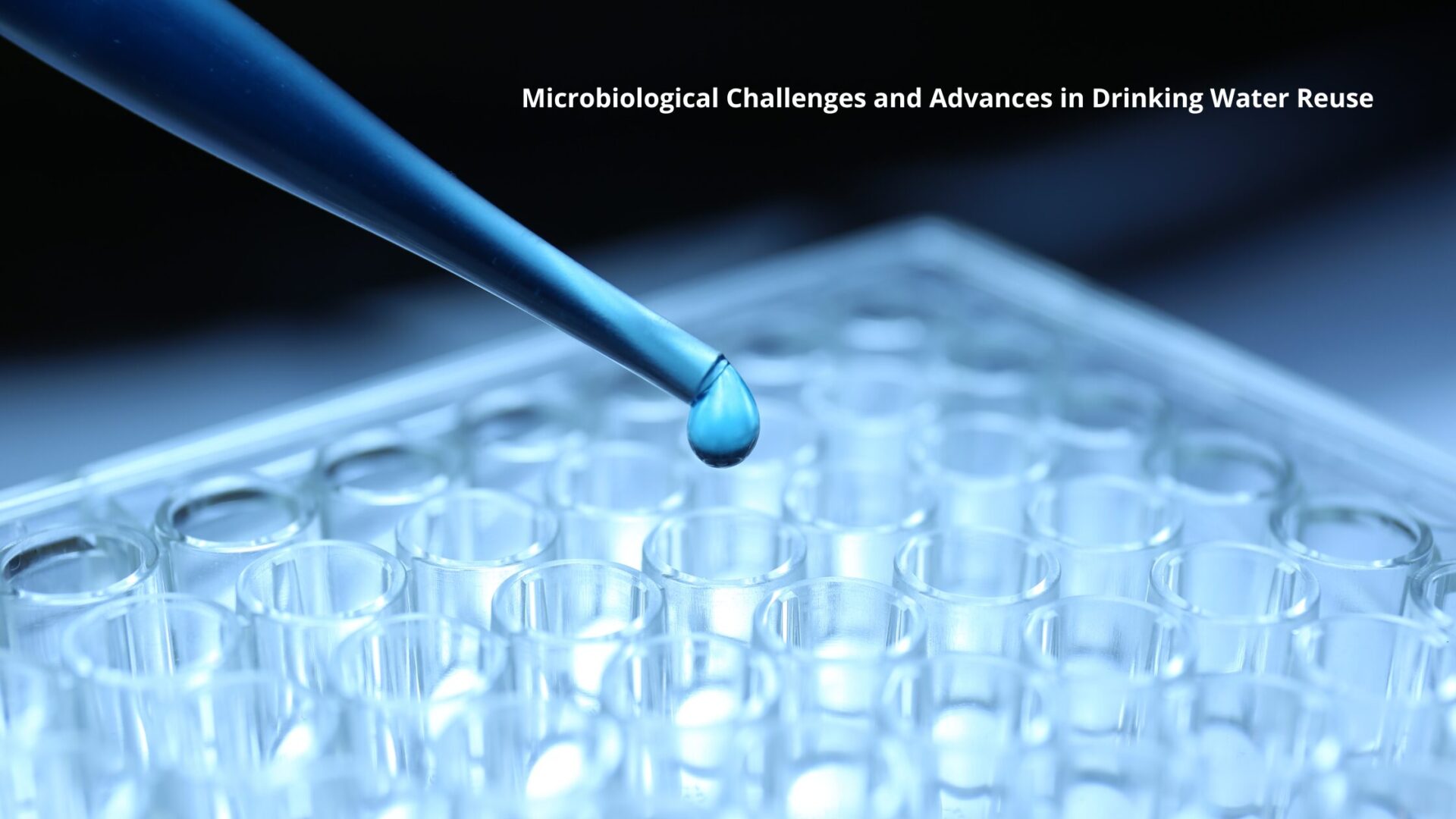BLOG | Bluephage
Microbiological Challenges and Advances in Drinking Water Reuse

As the world faces increasing water scarcity and the need for sustainable resource management, the practice of potable water reuse has emerged as a key solution. Walter Q. Betancourt, Ph.D. Associate Research Professor, Department of Environmental Sciences, University of Arizona, Tucson, Arizona, USA, an expert in microbiology, sheds light on the main challenges and advances in ensuring the safety of recycled water for drinking purposes during the Bluephage webinar “Wastewater becoming potable: Enhancing present innovation for a sustainable future”.
The discussion begins with recognizing the diversity of substances and organisms present in water, some of which pose significant risks to human health, animal welfare, and environmental integrity. In the field of microbiology, Walter stresses the importance of addressing the microbial hazards inherent in recycled waters, particularly those derived from wastewater treatment and advanced purification processes for potable reuse.
One of the main challenges of potable water reuse is mitigating the risk of viral contamination. Walter stresses the importance of redundancy in treatment processes to effectively remove viruses and other pathogens. Although advanced treatment methods have proven effective in reducing microbial contaminants, persistent viruses pose a formidable challenge due to their resilience to treatment.
However, advances in technology and data analysis offer promising avenues for improvement. Walter discusses ongoing projects to leverage machine learning and artificial intelligence to make sense of vast data sets related to water quality and microbial content. By leveraging these innovative tools, researchers can better understand the dynamics of viral contamination within the water reuse infrastructure and develop more effective mitigation strategies.
In addition, Walter underscores the importance of quantitative microbial risk assessment (QMRA) in assessing the safety of recycled water for human consumption. Continuous monitoring and improved methods are essential to ensure that recycled water meets stringent safety standards. While water reuse holds immense potential to address water scarcity, it is imperative to remain vigilant and proactive in addressing microbial risks.
Walter underscores the importance of continued research and technological innovation to safeguard the quality of recycled water intended for potable reuse. By addressing microbiological challenges and leveraging advanced tools and methodologies, stakeholders can ensure that recycled water remains a safe and reliable source of drinking water, even in the face of changing threats and uncertainties.
Walter Q. Betancourt, Ph.D. Associate Research Professor, Department of Environmental Sciences, University of Arizona, Tucson, Arizona, USA
He is an Environmental Virologist with a Ph.D. in Marine Science from the College of Marine Science, University of South Florida. He is an Associate Research Professor of the Department of Environmental Sciences at The University of Arizona. He has been working intensively on methods for recovery and detection of waterborne human pathogenic viruses in waters. He works collaboratively with academic and industry peers to investigate integrated membrane systems as well as carbon-based membrane processes and the influence of operational parameters on virus occurrence and reductions by potable reuse treatment trains. He also applies microbial source tracking methods to evaluate sources of fecal contamination of agricultural waters in the State of Arizona and in environmental aerosols from confined animal feeding operations to evaluate exposure risks to zoonotic pathogens.


